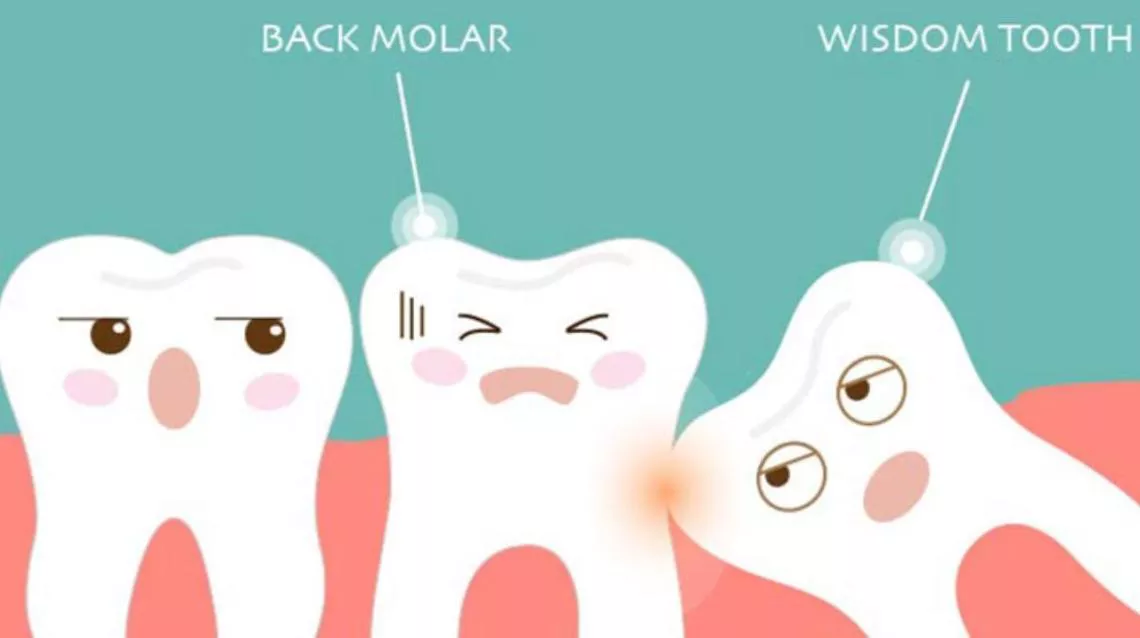Wisdom teeth, also known as third molars, are the last set of teeth to emerge in the human mouth, typically appearing between the ages of 17 and 25. While some people experience no issues with their wisdom teeth, others may face complications that necessitate removal. Deciding on the optimal age for wisdom teeth extraction is crucial to minimize potential problems and ensure a smoother recovery process. This article delves into the best age to get wisdom teeth removed, considering various factors such as dental development, potential complications, and individual health circumstances.
The Role of Wisdom Teeth in Dental Development
Wisdom teeth are remnants of our evolutionary past when our ancestors required extra molars to chew coarse, raw food.
Modern diets and improved dental hygiene have rendered these teeth less necessary. Consequently, many people today do not have enough space in their mouths to accommodate these additional molars, leading to various dental issues.
What Is The Best Age to Get Wisdom Teeth Removed
Wisdom teeth generally begin to emerge in late adolescence or early adulthood. The timing can vary, but the average age range for eruption is between 17 and 25 years. This period aligns with the final stages of jawbone development, which can influence the positioning and potential impact of wisdom teeth.
Factors Influencing The Best Age for Removal
Jaw Development and Space Availability
The jawbone continues to grow and develop until around the age of 25. Before this age, the bone is more pliable, making the extraction process easier and the recovery faster. Removing wisdom teeth during the late teens or early twenties can prevent complications that arise from insufficient space, such as impaction or crowding of adjacent teeth.
see also: can you get wisdom teeth at 40
Potential Complications
Wisdom teeth can cause several issues if not properly managed, including:
Impaction: When there isn’t enough room for the teeth to emerge fully, they may become trapped in the jawbone or gums, leading to pain, swelling, and infection.
Crowding: Emerging wisdom teeth can push against existing teeth, causing misalignment and requiring orthodontic intervention.
Decay and Gum Disease: Due to their location at the back of the mouth, wisdom teeth are harder to clean, increasing the risk of cavities and gum disease.
Optimal Timing for Prevention
To avoid these complications, many dental professionals recommend removing wisdom teeth before they fully emerge or at the first sign of potential problems. The optimal age for extraction is typically between 18 and 24 years. During this period, the roots are not fully formed, and the surrounding bone is less dense, making the procedure less complex and reducing recovery time.
Individual Health Considerations
Medical History and Overall Health
Individual health factors play a significant role in determining the best age for wisdom teeth removal. Patients with chronic health conditions or compromised immune systems may need to undergo the procedure earlier to prevent potential complications from infections or prolonged recovery periods.
Dental Health and Hygiene
Patients with excellent dental hygiene and regular check-ups may be able to monitor their wisdom teeth without immediate removal.
However, even in these cases, proactive removal during the late teens or early twenties can prevent future problems and maintain overall dental health.
The Procedure And Recovery
Pre-Operative Assessment
Before recommending extraction, a dentist or oral surgeon will perform a comprehensive assessment, including X-rays, to evaluate the positioning and development of the wisdom teeth. This assessment helps determine the optimal timing for removal and the most appropriate surgical approach.
Surgical Procedure
The extraction of wisdom teeth is typically an outpatient procedure performed under local or general anesthesia. The surgeon makes an incision in the gum tissue, removes any bone blocking access to the tooth, extracts the tooth, and stitches the incision closed. The entire procedure usually takes between 45 minutes to an hour.
Post-Operative Care and Recovery
Recovery from wisdom teeth extraction varies by individual but generally involves a few days of rest and limited activity.
Common post-operative symptoms include swelling, bruising, and mild pain, which can be managed with prescribed medications and ice packs.
Adhering to post-operative care instructions, such as avoiding strenuous activities and maintaining oral hygiene, is crucial for a smooth recovery.
Long-Term Benefits of Timely Removal
Preventing Future Dental Issues
Removing wisdom teeth at the optimal age can prevent a host of future dental problems, such as impaction, crowding, and decay. This proactive approach can save patients from more complicated and costly dental procedures later in life.
Improved Oral Health
By addressing potential issues earnts can maintain better overall oral health. With fewer teeth to clean and monitor, the risk of cavities and gum disease is reduced, contributing to a healthier, more functional mouth.
Special Considerations
Patients Over 25
While the late teens and early twenties are considered the best age for wisdom teeth removal, patients over 25 can still benefit from the procedure. However, the surgery may be more complex due to fully formed roots and denser bone, leading to a potentially longer recovery period. Older patients should consult with their dentist or oral surgeon to discuss the risks and benefits of removal based on their individual circumstances.
Monitoring and Maintenance
For patients who choose to retain their wisdom teeth, regular dental check-ups and X-rays are essential to monitor their development and identify any emerging issues promptly. Good oral hygiene practices, including thorough brushing and flossing, can help manage the risk of decay and gum disease.
Conclusion
Determining the best age to get wisdom teeth removed involves considering various factors, including dental development, potential complications, and individual health circumstances. While the optimal age range for removal is typically between 18 and 24 years, each patient’s situation is unique and should be evaluated by a dental professional. Proactive removal during this period can prevent future dental problems, ensure a smoother recovery process, and contribute to better overall oral health. For older patients, careful monitoring and timely intervention remain crucial to maintaining a healthy, functional smile.

